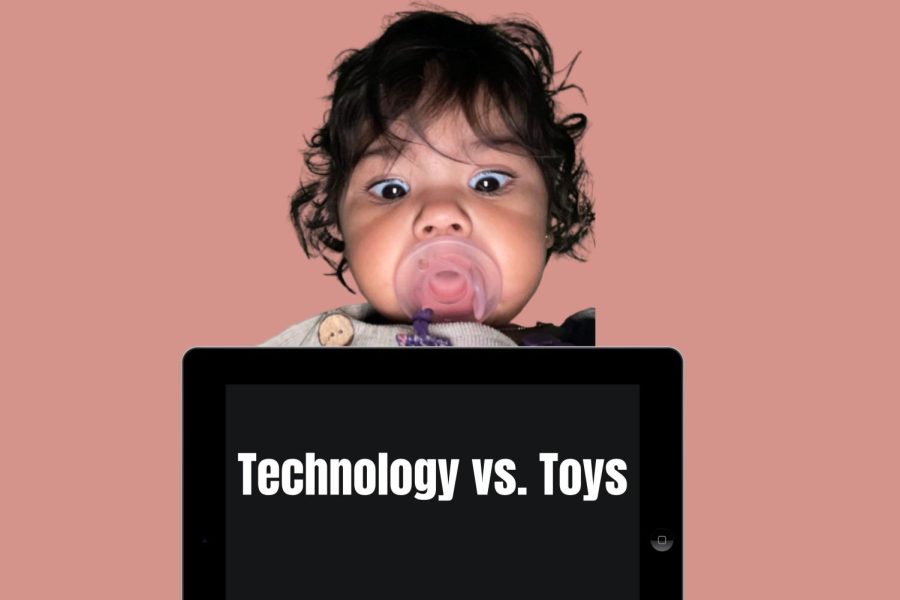Technology vs. toys
Technological advancements significantly impact the evolution of younger generations’ pastimes and hobbies. While present in previous generations, technology appears to deprive newer youth of their childhood with the numerous apps, programs and games available to them.
April 14, 2022
As time evolves, pastimes and hobbies for younger children dramatically change. Technological improvements heavily contribute to this evolution because parents and caretakers view them as a simple way to entertain their kids. This technology ranges from tablets and cell phones, which do not always hold detrimental effects if used responsibly. However, no form of technology can beat swinging on the swing set, bouncing on the trampoline or racing neighborhood kids outside.
Differences in pastime activities between varying generations do remain inevitable due to the circumstances we live in. For instance, COVID-19 forced the world to stay indoors and promoted the usage of technology. Recent generations such as Gen Alpha (ages 9 and under) unfortunately do not experience much of riding bicycles with neighbors or building that lego set because technology occupies them. A handful of parents put restrictions on their children’s devices to limit their use, but these physical toys and outdoor activities made several childhoods memorable and nostalgic. While previous generations including millennials and Gen-Z (ages 10-25) did possess access to forms of technology like iPads, iPods and televisions, they did not appear codependent on them the way that youth does today. Because numerous children receive these devices at such a young age, they do not know life without them.
“My little sister’s favorite pastime is playing with her toys but she doesn’t really go outside to play. She does prefer using her iPad and watching TV over anything else sometimes though. She always likes having a device on and gets irritated at times when you try to turn it off. Even though she’s only two and can’t read, she knows how all the apps work and what buttons to press. When I took a picture on Snapchat, she knew how to save and delete the picture, so I definitely think that technology is taking over current and future generations,” magnet junior Allison Castañeda said.
Parents commonly claim that they give their children cell phones because they understandably allow them access to them at all times in case of an emergency. Every child requires different needs and accommodations depending on the circumstance.
“When we talk about safety, health is connected. We have all asthmatic children and we have had emergency situations wherein we needed to get in contact with someone quickly. I would not feel comfortable sending my children off and thinking — they weren’t breathing too well when they left, but maybe they’ll be okay — without being able to text them in the middle of the day and say, “How’s your breathing?” I think that I have gotten much more comfortable with the phones because it’s a security blanket in a lot of ways,” parent Zuton Lucero-Mills said.
While a handful of people consider technology among children as the “new normal”, parents should encourage their children to make the most of their childhood and enjoy activities that do not involve devices of any kind. This will create a multitude of memorable moments that they can look back and reminisce or laugh at.







